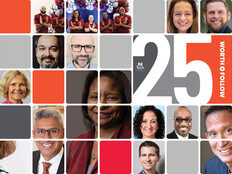Murky Federal Privacy Law Puts MOOC Student Data in Questionable Territory
The federal government may be legally powerless to protect data collected from students taking massive open online courses (MOOCs), according to a U.S. Department of Education spokeswoman, and two of the largest MOOC platforms disagree on the boundaries of the law in question.
MOOC platforms have amassed a treasure trove of data from tracking the activities of millions of students — from the things they click to the time they spend taking each course. And in the data-driven climate of higher education, such information has become more valuable than ever. But can it be safeguarded?
The Family Educational Rights and Privacy Act (FERPA) protects the privacy of student education records, but MOOCs appear to be cut from a different cloth, according to Kathleen Styles, the U.S. Department of Education’s chief privacy officer.
At a Dec. 2 symposium on student privacy, The Chronicle of Higher Education reports Styles said, "Data in the higher-education context for MOOCs is seldom FERPA-protected." A U.S. Department of Education website says FERPA applies to “all schools that receive funds under an applicable program of the U.S. Department of Education.” MOOCs are rarely funded with Title IV, government-funded dollars, Styles said.
However, two of the largest MOOC providers disagree on whether federal law applies to their student data.
The standard agreement used by edX, a MOOC platform founded by Harvard University and the Massachusetts Institute of Technology, says that it is subject to and complies with FERPA requirements, according to The Chronicle.
Coursera, a MOOC platform founded by Standard University professors, follows the "principles" of FERPA but doesn't think it applies to MOOCs, its chief academic strategist Vivek Goel told The Chronicle.
Several universities, including the University of Illinois and the University of Pennsylvania, have partnerships with Coursera to offer online courses through the platform, but in each case, the protection of student data under FERPA is not guaranteed.
A website of frequently asked questions about MOOCs, intended for faculty at the University of Illinois, defines this relationship: “The university does not consider participants in our Coursera courses to be students of the University of Illinois and thus [FERPA] regulations do not apply.”
The same website, MOOCs@Illinois, also distinguishes between the work students conduct on the Coursera platform and the work done by students on campus.
“We do not see the MOOC experience as equivalent to a full university course experience,” according to the website.









